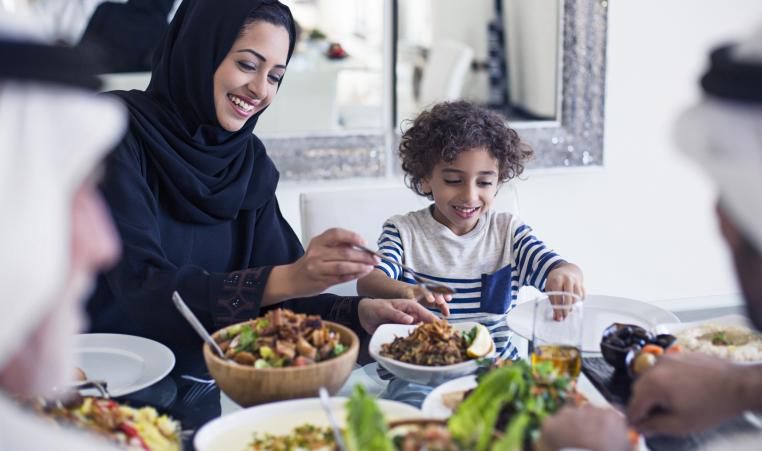The Importance of Family Meal Times

In the hustle and bustle of modern life, finding time to gather around the table as a family for meals can seem like a challenge. However, the benefits of sharing meals together are profound and worth prioritizing in our daily routines. Family mealtimes have been shown to build healthy habits into adulthood, including mindful eating, listening to satiety cues, and building a better relationship with food. Additionally, children are more likely to be willing to try new foods if they participate in meal preparation!
Family mealtimes provide an opportunity for connection, communication, and nourishment beyond just the food on the table. Let’s explore how to incorporate them into our lives more intentionally.
Schedule Regular Mealtimes: Set a designated time each day, if possible, for family meals. Whether it’s breakfast, dinner, or even a weekend family brunch, having a consistent schedule helps everyone anticipate and prioritize this valuable time together.
Create a Welcoming Atmosphere: Make mealtimes enjoyable by creating a welcoming atmosphere at the table. Encourage open conversation, laughter, and sharing of stories. Turn off electronic devices to minimize distractions and foster genuine connection.
Involve Everyone in Meal Preparation: Get the whole family involved in meal preparation. From choosing recipes to grocery shopping and cooking, involving children and partners in the process fosters teamwork and teaches important life skills. Plus, everyone will be more invested in the meal when they’ve had a hand in creating it.
Make it a Ritual: Rituals help reinforce the importance of family mealtimes. Whether it’s sharing highlights of the day or simply expressing gratitude for the meal and each other, establishing rituals adds depth and meaning to the dining experience.
Family mealtimes are more than just about encouraging nutritious food—they nourish our bodies, minds, and relationships. By prioritizing regular family meals and creating a welcoming atmosphere around the table, we can strengthen bonds, create lasting memories, and cultivate a sense of belonging that sustains us far beyond the dinner hour. So let’s gather, feast, and cherish these moments together, for they are the heart and soul of family life.
Kid-Friendly Recipe: Homemade Pizza Pockets
Looking for a fun and interactive way to involve the whole family in meal preparation? Try making homemade pizza pockets! This kid-friendly recipe is delicious and allows everyone to get creative with their toppings. Here's how to make them:
Ingredients:
- 1 package of refrigerated pizza dough
- 1/2 cup pizza sauce
- 1 cup shredded mozzarella cheese
- Assorted toppings: pepperoni slices, diced bell peppers, sliced olives, tomatoes, cooked sausage, etc.
Instructions:
1. Preheat the oven to 375°F (190°C). Line a baking sheet with parchment paper or lightly grease it to prevent sticking.
2. Prepare the dough: Roll out the pizza dough on a clean, floured surface. Using a knife or pizza cutter, cut the dough into rectangles of your desired size (approximately 4x6 inches).
3. **Add toppings:** On one half of each dough rectangle, spread a spoonful of pizza sauce, leaving a small border around the edges. Sprinkle shredded mozzarella cheese on top of the sauce, then add your favorite toppings.
4. Fold and seal: Carefully fold the other half of the dough over the toppings to create a pocket. Use your fingers or a fork to press the edges firmly together, sealing the pockets shut. Make sure they are well-sealed to prevent the toppings from leaking out during baking.
5. Bake: Place the pizza pockets on the prepared baking sheet. Bake in the preheated oven for 15-20 minutes, or until the crust is golden brown and the cheese is melted and bubbly.
6. Serve and enjoy: Remove the pizza pockets from the oven and allow them to cool slightly before serving. Serve with extra pizza sauce for dipping, if desired. Enjoy!
Patricia Esparza, RDN is a Registered Dietitian with the YMCA of Metropolitan Dallas. She earned her Master’s degree in Human Nutrition from Viterbo University and is a Licensed Dietitian. Patricia has a wide variety of experience in clinical dietetics and public health nutrition. Her own journey with health and wellness, has fueled her passion for nutrition education to build healthier communities.
